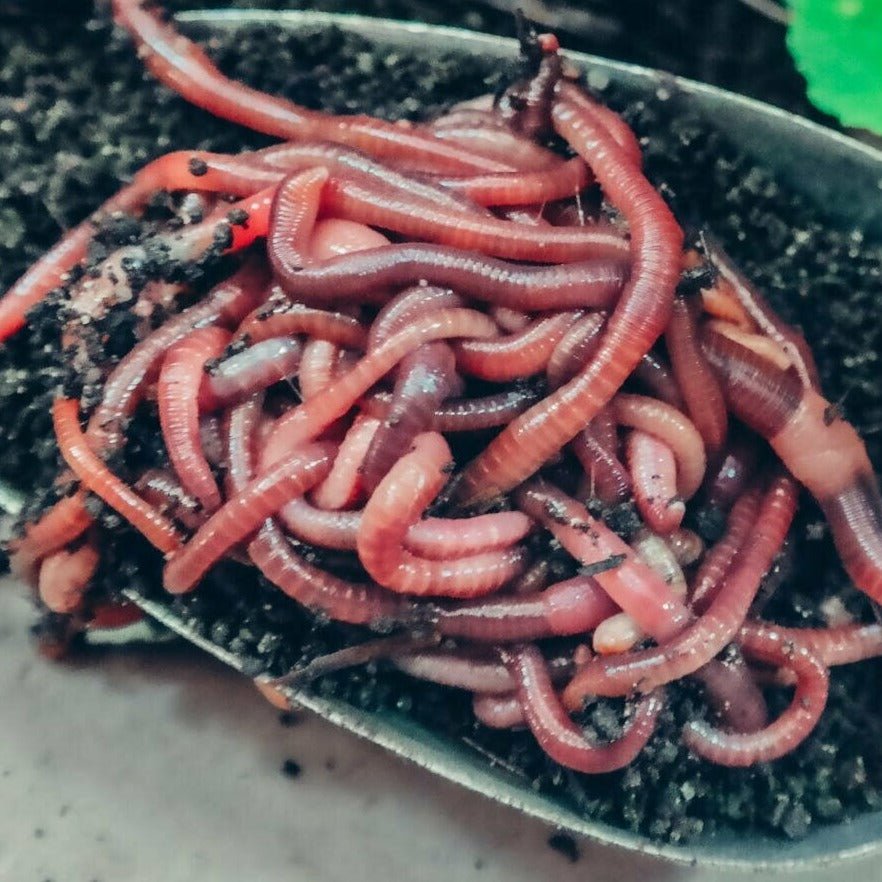Unlock the Secrets of Red Wigglers: Your Guide to Composting Success
The combination of red wigglers into composting techniques offers a considerable chance for enhancing dirt health and advertising sustainability. Recognizing their requirements and behaviors is important for enhancing their capacity, from establishing up a proper worm bin to feeding them the appropriate products.

What Are Red Wigglers?
Indigenous to North America, they are commonly found in rotting fallen leaves and compost heap, where they play an important function in nutrient recycling. Their adjustment to staying in a moist, cardiovascular atmosphere allows them to take in huge amounts of natural waste, damaging it down right into nutrient-rich spreadings that enhance soil wellness.
Red wigglers recreate swiftly, with a solitary worm capable of generating numerous cocoons each week, each consisting of numerous hatchlings. This rapid reproduction price adds to their performance in composting operations. They like temperature levels between 60 ° F and 80 ° F, and their activity level boosts dramatically within this range, more helping in the decomposition process. Recognizing the biology and behavior of red wigglers is vital for optimizing their possibility in composting applications.
Benefits of Utilizing Red Wigglers
Taking advantage of the power of red wigglers in composting uses many advantages that improve dirt health and promote lasting waste monitoring. These impressive microorganisms effectively damage down raw material, transforming cooking area scraps and backyard waste into nutrient-rich vermicompost. This completed product is exceptionally useful for plant growth, as it improves soil framework, raises dampness retention, and improves nutrition availability.

Establishing Up Your Worm Bin
Producing an effective worm container is a straightforward procedure that can dramatically improve your composting efforts. The primary step is choosing an ideal container. Worm bins can be made from plastic storage space bins, wooden boxes, or readily offered worm containers. Ensure the container has adequate drain and air flow holes to preserve optimum moisture degrees and airflow.
Next, prepare the bed linens material, which offers as the worms' habitat. A mix of shredded paper, cardboard, and coconut coir functions well, offering a comfy atmosphere for the worms.

Feeding Your Red Wigglers
To guarantee the health and wellness and productivity of your red wigglers, it is important to supply them with a balanced diet regimen that satisfies their nutritional demands. Red wigglers grow on a varied variety of organic products, which not just provide necessary nutrients however additionally advertise efficient composting.
Start by incorporating kitchen area scraps such as go to this site vegetable peels, fruit cores, and coffee premises. Stay clear of citrus fruits, onions, and garlic, as these can be harmful to worm health. Additionally, present shredded paper, cardboard, and completely dry fallen leaves to produce a well-aerated environment.
Feeding regularity need to be kept an eye on; normally, worms can consume half their body weight in food weekly. It is vital to avoid overfeeding, as excess food can cause unpleasant smells and bring in bugs. A great method is to add food in percentages, permitting worms to refine it prior to introducing much more.
Maintaining dampness levels is additionally vital; the bedding ought to perspire however not soggy. Be certain to on a regular basis check the temperature level and pH degrees of the container to ensure an optimum environment for your red wigglers, ultimately enhancing their composting effectiveness.
Harvesting and Using Compost
A successful composting procedure with red wigglers finishes in the rich, dark compost called vermicompost, which can dramatically improve soil wellness and plant growth. Harvesting this nutrient-dense product normally happens every three to 6 months, depending upon the dimension of your system and the amount of natural matter being processed.
To gather, gently different the compost from the worms and any type of undecomposed materials. One efficient approach involves moving the components of the bin away and including fresh bed linen and food to the empty space, encouraging the worms to migrate. After a few days, the garden compost can be collected from the opposite side.
It is important to make use of vermicompost appropriately to optimize its advantages. By including vermicompost right into your horticulture routine, you not only reuse natural waste yet additionally produce a successful ecological community that supports sustainable horticulture methods.
Final Thought
In recap, red wigglers work as phenomenal allies in composting efforts, transforming natural waste right into nutrient-rich vermicompost (Red Wiggler Express). Their special organic attributes and efficient waste handling abilities contribute dramatically to sustainable horticulture practices. By understanding the ideal problems for their habitat, feeding needs, and garden compost harvesting techniques, garden enthusiasts can boost dirt health and wellness and advertise plant vigor. Embracing vermicomposting not only minimizes landfill waste however also promotes an extra eco accountable strategy to gardening and source management.
Comments on “The Secret to Lush Lawns Starts with Red Wiggler Express Lawn Care Services”